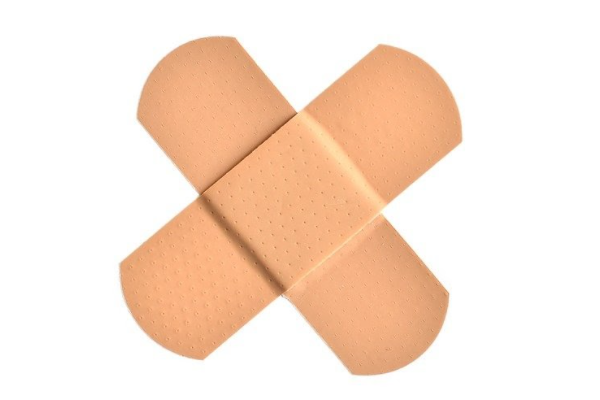 It doesn’t matter what you do for a living. As long as you have a job, at some point in your life, you’re going to get injured on the job.
It doesn’t matter what you do for a living. As long as you have a job, at some point in your life, you’re going to get injured on the job.
In fact, according to the Bureau of Labor Statistics, every year an estimated 2 million nonfatal workplace injuries and illnesses are reported by private industry employers. If you’re unlucky enough to be one of those people who suffer from a work-related injury, then it’s important that you rest up and recover as much as possible so that your body can heal itself. However, this doesn’t mean that your recovery stops there; like with any injury, if left untreated it will only get worse. This is why it’s important that you follow the steps below to ensure that your injury doesn’t become a chronic problem.
See Your Doctor
The first step in recovering from any type of injury is to consult with your doctor about what happened. Doctors for accident provide a thorough evaluation to rule out neurological disorders and other possible complications. Before he or she can give you advice on how to care for your injury, they need to know exactly what happened to cause the pain and discomfort you are currently experiencing. If this means taking X-rays, MRIs, CAT scans, etc., then be prepared to do so because this will ensure that your doctor makes an accurate diagnosis of your injury. Not only that but if you have health insurance then seeing a doctor may actually get covered by said insurance, which would likely save you a great deal of money.
Prep Your Doctor for Your Injury
If you work with a doctor, then chances are that they’ve dealt with an injury like yours hundreds of times before. However, if this is your first time dealing with such an injury then it’s important that you give them as much information as possible about how and when the accident at work happened. Also, make sure to mention any symptoms that aren’t listed above (e.g., if your shoulder hurts but nothing else does – save the doctor some time). If your boss isn’t willing to tell you what happened (for obvious reasons), try asking a co-worker who witnessed it happen and was there until the ambulance took you away; he or she will likely be willing to tell you everything they know.
Know What You’re Entitled To
There are a number of things that your doctor will want to do in order to help you recover from your work-related injury, but one of the most important is ensuring that you receive workers’ compensation for your injury. This is so important because not only does it cover both current and future medical expenses, but it can also provide additional financial support if you aren’t able to return back to work after receiving treatment. Some forms of income replacement may include temporary disability, permanent partial disability, or vocational rehabilitation services. Workers’ comp also covers necessary transportation costs (e.g., public transportation or car/truck rental), housekeeping services, child care services, food, and funeral costs.
Seek the Help of a Good Lawyer
If you don’t know how to file a workers’ compensation claim or simply feel overwhelmed by all the red tape that comes with it, then consider hiring a lawyer to help you deal with your employer’s insurance company. If you are from Indiana, hiring a personal injury lawyer in Indianapolis or nearby will get you the guidance you need from a dedicated legal professional. The good thing about working with an attorney is that they know which doctors to see, how to deal with insurance companies, and even file your claim for you if you don’t feel like completing all of the paperwork on your own.
Hiring the right workers’ compensation lawyer is crucial for securing your rights and obtaining deserved compensation for a workplace injury. Look for specialists in workers’ compensation law with experience handling such cases, considering their reputation and credentials. Utilize free initial consultations to assess your comfort working with the attorney and their communication skills. Understand the fee structure, preferably on a contingency basis. Prioritize lawyers with local knowledge, and seek references from previous clients for insights into their abilities. Trust your instincts in choosing a lawyer with whom you feel comfortable and confident in their expertise.
Get Your Injuries Treated Right Away
The body’s natural response to a traumatic event, such as a car crash, includes the release of adrenaline, which can temporarily mask pain and symptoms. Therefore, seeking immediate medical attention ensures a thorough evaluation before the effects of adrenaline wear off.
The longer you wait to get treatment, the higher your risk will be of developing chronic issues due to poor blood flow and decreased range of motion in the joints. Depending on what type of injury you have sustained at work (e.g., ankle sprain or broken arm), it’s important that you seek help from a physical therapist as soon as possible so that he or she can provide some relief from the pain.
A prompt medical evaluation is crucial to identify and address any injuries sustained during the incident, including those that may not exhibit immediate symptoms, such as internal bleeding or head trauma. Some injuries may not manifest symptoms until later, but early detection and treatment can prevent complications. Additionally, timely treatment provides documentation of damages, which is vital for filing insurance claims and seeking compensation.
Be Careful When Returning to Work
Unless your doctor tells you that you can, don’t return back to work after getting injured on the job. In most cases, this is because your injury will still be in the recovery stage, and/or the pain is too intense for it to be safe for you to do your job. When your doctor tells you that it’s okay to return back to work after getting injured at work, make sure that you continue to monitor the health of your injuries over time. Doing this allows you to take proactive measures when an issue starts happening (e.g., if you start developing tendonitis due to poor ergonomics). Also, if something doesn’t feel right then talk with your doctor before doing anything strenuous in order for him or her to provide additional advice or treatment options. before things escalate. Also, consider taking time off of work if you are still in pain even after getting treated since this is usually the sign of either a more serious injury or an underlying condition.

If your employer failed to provide you with proper safety equipment or training before allowing you to perform certain tasks at work, then he or she may have violated state and federal laws and you will need to be compensated for it. It’s understandable that you don’t want to go back into the same situation where your accident happened, but it’s important that you do return because this will allow other workers to identify any safety concerns so they can avoid sustaining an injury like yours in the future. The more you encourage other employees to speak up about workplace dangers, the safer your entire company will be.
Become a Harlem Insider!
By submitting this form, you are consenting to receive marketing emails from: . You can revoke your consent to receive emails at any time by using the SafeUnsubscribe® link, found at the bottom of every email. Emails are serviced by Constant Contact








